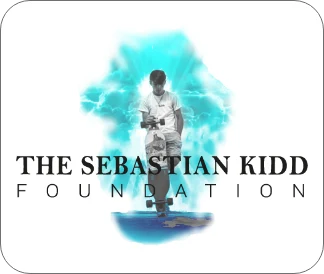Coping Mechanisms
Counseling/Therapy

Church
Church provides a sanctuary of peace and support, free from judgment. Religious and spiritual practices have been shown to positively affect brain activity and promote positive feelings. Engaging in these practices within a community also fosters social connections and a sense of belonging.

Exercise
Exercise triggers the release of endorphins and serotonin in the brain, which can elevate mood. It distracts from negative thoughts, alleviates stress, combats mental fatigue, and boosts energy levels. Improved sleep, enhanced self-esteem, and a sense of purpose are additional benefits. Exercise also offers opportunities for social interaction and support.

Social/Grief Groups
Grief support groups offer a safe space for sharing emotions that might be difficult to express with close friends or family. They provide a sense of community, allowing individuals to learn from others’ experiences and discover new coping skills, relaxation techniques, and stress management strategies. These groups can instill hope and validate one’s thoughts and feelings.

Hobbies/Activities
Engaging in hobbies and activities provides a healthy distraction from daily stressors. It offers a chance for personal time while still feeling productive. Creative activities, in particular, can enhance positive moods and provide a social outlet for additional support.

Tattoos
Memorial tattoos can serve as a meaningful way to grieve, allowing individuals to express themselves, remember loved ones, and mark their grief journey. The physical pain of getting a tattoo can symbolize emotional grief, helping to confront, experience, and heal from the pain of loss.

Community Involvement
Helping others can provide a sense of purpose and meaning, grounding individuals and fostering a sense of connection. Community service and outreach can be powerful tools for stress relief and personal fulfillment.

Art
Engaging in artistic activities like painting, drawing, or sculpting offers an outlet for expression and stress relief. Art allows individuals to channel their emotions into creative endeavors, promoting mental relaxation and emotional release.

Writing
Writing can be a therapeutic self-care method, allowing individuals to unwind and de-stress. It offers an opportunity to process and share personal perspectives on difficult situations, facilitating emotional release in a healthy way.

Music
Music releases dopamine, acts as a distraction, and alleviates stress, anxiety, and depression. Music therapy helps individuals express emotions and achieve mental relaxation, providing a powerful tool for emotional regulation.

Work
For some, work can be a stress-reliever, offering a familiar routine that keeps the mind and body busy. Engaging in meaningful work can provide a sense of accomplishment and purpose, helping to manage stress effectively.

Travel
Traveling offers a chance to connect or reconnect with oneself and others, strengthening relationships and building strong bonds. It can improve sleep, wellness, productivity, and mental motivation, while also reducing stress and anxiety and increasing happiness.

Pets
Pets provide emotional support and companionship, offering a sense of purpose and encouraging exercise. Interacting with pets can lower cortisol levels (a stress hormone) and increase oxytocin (a feel-good hormone), promoting emotional well-being.

Nature
Being in nature absorbs us and distracts from pain and discomfort, as we are genetically programmed to find natural elements engrossing. Studies show that time spent in nature lowers stress hormone cortisol levels, decreases heart rate, improves mood, and eases depression and anxiety.

Friends/Family Time
Spending time with friends and family fosters emotional connections and support. These relationships provide a sense of belonging and community, helping to alleviate stress and promote overall well-being.


